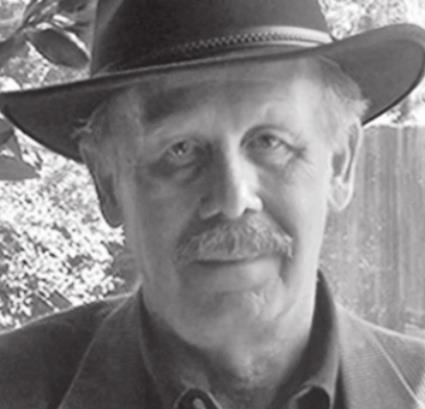The career of Tom “Black Jack” Ketchum, the most successful train robber in the Old West, reached the end of the line on Apr. 26, 1901. Kicked out of his own gang, the hard-bitten badman made the fatal mistake of trying to go it alone.
The Ketchums settled in San Saba County west of Waco the same year Texas entered the Union.
The pioneer parents did their best to raise a God-fearing brood, but nightly Bible readings had no effect on Tom, the baby of the family who even as a child had a mean streak a mile wide.
Older brother Sam not only failed to keep his wayward sibling in tow but foolishly followed the bad seed’s example. Indicted for cattle rustling in 1885, the Ketchum boys fled their home county for the wide-open lawless spaces.
Tom and Sam spent the next dozen years on the dodge, sometimes stooping to honest toil as cowboys but more often scraping by on the proceeds from petty thievery. Tired of the slim pickings, Tom dreamed up the audacious idea of living off the railroads.
Backed by a supporting cast that fluctuated between four and eight bit players, the brothers made up for lost time. In a two-year span, the outlaws looted seven trains in Texas and New Mexico for a record take estimated at $200,000.
But Tom’s heavy-handed methods and hair-trigger temper rubbed his associates the wrong way. Push came to shove early in 1899, and the unpopular leader was given the boot with his brother’s blessing.
To prove he could make it by himself, Tom attempted the impossible -- a solo train heist. Slipping aboard a locomotive outside Folsom, New Mexico one night in August 1899, he learned the hard way that a lone wolf needed eyes in the back of his head.
Badly wounded by a shotgun blast from a conductor, the bleeding bandit crawled away empty-handed.
Too weak to mount his horse, Ketchum sat down and waited for the next train. Figuring on a short stretch in prison for the bungled crime, he calmly surrendered the following morning to a startled crew.
The arresting sheriff had the pleasure of informing infamous “Black Jack” that the New Mexico territorial legislature had recently upped the ante for his specialty. Upon hearing that he could hang, Tom replied, “If I had known that it was a capital offense for robbing a train in your territory, I would certainly have killed someone.”
While awaiting trial, Tom was told of the demise of his estranged brother, whose capture had preceded his own. Refusing medical attention for an infected bullet wound, Sam chose an agonizing death over life imprisonment.
The open-and-shut case resulted in the expected conviction.
Tom cooled his heels for 18 months in the penitentiary at Santa Fe, as his attorneys tried every trick in the lawbook to save their condemned client. But the legal maneuvers merely postponed the inevitable, and in April 1901 Ketchum was transferred to the small town of Clayton for execution.
As the appointed hour approached, Tom showed neither remorse nor a last-minute desire for salvation.
During his final night on earth, a priest came to hear his confession. Tom snarled sarcastically that he would reveal his many sins only if the priest did so first.
Moments before his date with the hangman, Ketchum offered a piece of parting wisdom to anyone considering a life of crime. “My advice,” he reflected, “is not to steal horses or sheep but either rob a train or bank when you have got to be an outlaw. And every man who comes in your way, kill him. Spare him no mercy, for he will show you none.”
At 13 minutes past one on the afternoon of April 26, 1901, “Black Jack” Ketchum was escorted to the gallows. While climbing the steps, he proudly predicted in a booming baritone, “I’ll be in hell before you start breakfast, boys!”
He gave the crowd a last contemptuous glance and muttered, “Hurry up, boys. Get this over with.”
The executioner ner-vously slipped the noose over Ketchum’s head and was all thumbs as he took up the slack around his throat. Then came the traditional black hood that blotted out the ghoulish throng. Through the veil Tom pleaded, “Please dig my grave very deep.”
It took two swings of the ax to cut the control cord sending the bandit into oblivion. But something went wrong, and as Ketchum’s feet hit the ground his head was ripped clean off his body.
The doctor present to pronounce the outlaw officially dead was asked to sew the severed skull back on the corpse. He complied with a shrug and according to eyewitnesses did a top-notch job under the circumstances.
Ne’er-do-wells of the post-Civil War period often blamed their misdeeds on the horrors of combat or the harsh occupation after Appomattox. Not so “Black Jack” Ketchum, who was just plain bad and perversely proud of it.
Bartee welcomes your comments and questions at barteehaile@gmail.com or P.O. Box 130011, Spring, TX 77393 and invites you to visit his web site barteehaile.com.


